 |
NEWS: June 30, 2008
Bird’s Eye View of the News
Atila Sinke Guimarães
A MULTI-FACETED ECOLOGY, THE NEW IDEAL FOR RELIGIOUS ORDERS
– The Rome bulletin Adista transcribed the principal parts of a talk delivered by the president of the Spanish Conference of Religious (Confer), Fr. Alejandro Fernandez Barrajon, a religious from the Order of Our Lady of Mercy (June 7, 2008, pp. 6-9). Confer is an organization that represents 64,000 religious in Spain and has an increasingly influential voice in national events. Barrajon’s speech - entitled "Consecrated Life and the Integrity of Creation" - was delivered at the Week of Religious Life Conference that took place in Bilbao.
The talk is of interest because it summarizes and gives shape to a general tendency that is becoming prevalent in religious orders and congregations around the world, as well as in the secular clergy.
An anti-capitalist ecological approach
Early in his presentation, Fr. Fernandez Barrajon takes an anti-capitalist approach. Indeed, he says: “The ecological situation of the planet is reaching an irreversible deterioration caused by a devastating model of development … The solution implies, therefore, a change in the consumer lifestyle of developed society toward a reduction of consumer products and a greater respect for the environment.”
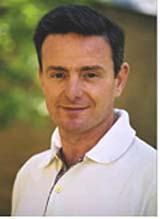
Fr. Barrajon, a Mercedarian |
Why should religious orders and the Church enter the green arena to promote ecology? He answers: “In the face of the frightening organization of the prevailing system, Confer proposes an evangelical, compassionate and Samaritan spirituality that promotes a simple, welcoming and common life; a transforming and liberating social praxis that may interest a network of Church congregations and institutions as well as other social movements.”
Fr. Barrajon’s first aim, then, is to engage the religious orders in a liberating social movement in order to change the present day consumer mentality. Only secondarily does he refer to ecology properly speaking. “We must favor the awakening of an ecological consciousness that expresses itself through concrete, coherent options,” he says.
According to the president of Confer, global warming, droughts, flooding, forest destruction, desert growth around the world - along with other meteorological disasters - are caused directly or indirectly by the present-day economy. He warns: “The alarm is being sounded in many places of the world, but strong economic interests and the established power systems silence those voices in order to maintain their political weight and sustain these empires.” Further, he emphatically insists: “Today more than ever, we must stop the economic dynamics that are destroying everything.”
These few excerpts from the Spanish religious would already be enough to include him as a member of Liberation Theology, which has caused - and continues to produce - so much damage. Instead of taking up the banner to liberate the poor - as the Boffs, Bettos and Gutierrez did - he pretends to save the planet. But to do so he must destroy the same “enemy” that Liberation Theology aimed to demolish, that is, Capitalism. At the very least, one can say that Liberation Theology and Ecological Theology are friendly and helpful fellow travelers on the same road.
Ecology of man, nature and spirit
Fr. Barrajon further distinguishes three types of ecology: of man, of nature, and of the spirit.
His ecology of man makes the same cry against poverty that we have always heard from Communists, Socialists, Distributists and Progressivists. Here is his new ecological presentation of the same problem:
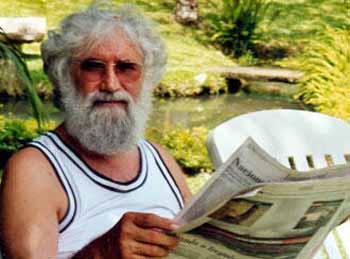
Above, Leonardo Boff embraced ecology as the substitute for Liberation Theology. Ecology now preaches the same revolutionary ideals. Below, the Christ of L.T. fits well with the described ecology of man
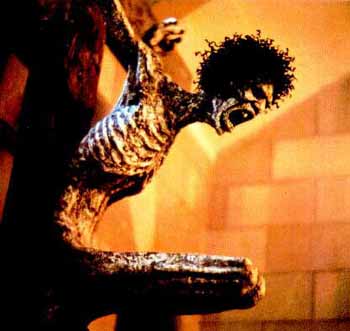
|
“The ecology of man gives first place to the shameful situation of radical poverty in which millions of human beings live. This is the most perverse attack on ecology. In the face of the misery of so many human beings without a future or hope, there can be no half-measures. … above all, at a time when there are abundant natural and economic resources to respond to this situation that cries out to Heaven.”
Now we have the Spanish religious demanding that this same “consumer economy” he wants to destroy should first voluntarily give everything to the poor. If he really wants to be just, why doesn’t Fr. Barrajon at least acknowledge that it is Capitalism that has produced the abundance of food and goods he wants to distribute? It would be the only decent position to take. He could, for example, say: ‘You are very efficient, but bad.’ But his hatred for the system is so deep-rooted that his only mention of its efficiency is to demand that the surplus of goods it produces must be given to the poor.
Here is another curious thing: Why doesn’t Barrajon make the same demand to the Communist systems? After all, taking advantage of Nixon’s detente policy, Carter’s economic protection, and artificial injections of capital from the Western bourgeoisie, China has become a strong economic power. It has such a surplus of money that it is practically “buying” many countries in Africa, that is to say, entering into controlling contracts that allow China direct exploitation of Africa’s natural riches.
Fr, Barrajon, who blames Europe for contaminating the waters and killing the fish of Lake Victoria in Africa, conveniently forgets to mention that China is economically dominating and exploiting entire countries in Africa (1). It is an omission that appears very biased: everything that is Capitalist is bad; everything that is Communist escapes his razor-sharp indignation. It seems to indicate his tendency to favor the latter system.
Just in passing: Barrajon includes all immigration issues around the world as part of the ecology of man.
1. To read about China’s economic, military and diplomatic influence in Angola, Algeria, Benin, Gabon, Kenya, Nigeria, South Africa, Sudan, Togo, Zambia and Zimbabwe, click here.
Then he goes on to explain the ecology of nature. Suddenly he becomes poetic and imagines an illusory nature: “Nature is God’s paradise for humankind,” he croons. Since he does not seem to believe in the real Paradise where our first parents resided, he applies the words of Genesis to nature as it exists now. Original sin and God’s punishment are also out of Barrajon’s picture. He says about today's nature what the Bible says about all of creation: “And [God] saw that the ensemble was good.”
As a religious, Fr. Barrajon should know that after original sin, the ensemble of nature was chastised in different degrees. But he pretends there was no such punishment. So, for him, there would be no salmonella from eggs, no mad-cow disease from beef, no bird flu virus from poultry, no bubonic plague from rats, no malaria from mosquitoes; rather, everything is good and a part of “God’s paradise.” The only blame should be placed on the consumer system. In his talk, he returns to this indictment: “Hidden behind the disrespect for and destruction of nature is an oppressive system saturated with harmful interests.”
Now, let us go to his ecology of the spirit, which in principle should be his main point, since he is addressing the topic of religious life. Here, Fr. Fernandez Barrajon introduces and mixes two meanings of ecology of spirit.
His first meaning is to seek a better-quality life. He states: “Definitively, we should look for those areas where a greater and better-quality life is possible. Ours is indisputably a commitment to a quality life. The ecology of spirituality signifies a more complete vision of nature that is not just the material reality.”
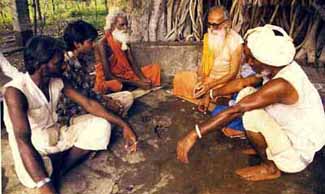
Above, a Spanish Jesuit, with glasses, practices poverty in India and prays using Hindu apparel and postures. Below, Catholic monks and nuns discuss eco-spirituality with Buddhists at Gethsemani Abbey
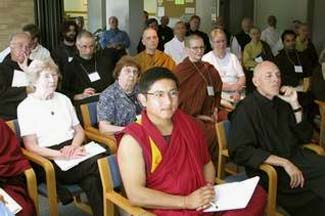
|
His second meaning considers the earth itself as an object of faith… He says: “We need to make ideological and emotional changes to situate ourselves correctly into our context with a spiritual gaze that makes us value and love our earth as a privileged and necessary ambit for the faith.”
To understand what Barrajon wants to say in this last paragraph, a distinction must be made. The traditional Catholic teaching tells us that all of nature is a reflection of God’s wisdom and should be the object of our contemplation as well as an instrument to know, love and serve the Creator. However, Catholic teaching does not affirm that the contemplation of the earth as such is “necessary,” as Barrajon declares. I think that it is convenient, but in essence it is dispensable. A Catholic may very well know God through other means. This supposed necessity to love the earth that Barrajon advocates takes on a kind of Buddhist or Hindu connotation. It looks like he is affirming that people must in some way adore a pantheistic divine presence disseminated on the earth or some pagan deity such as Gaia, a mythological entity that supposedly is the goodness of the earth.
But Barrajon doesn’t linger long in the theoretical; he quickly returns to practical measures: no wasting water in showers, no unneeded lights turned on, no air-conditioners, no elevators in three or four-storied buildings. These comforts should be avoided; otherwise, “we are contributing to a scandalous inequality, to a structural injustice, to the arrogant abuse of the man who has and wants everything for himself.”
A new religious ideal
Fr. Fernandez Barrajon closes his talk with an invitation for religious to adopt a new ideal. The religious under his direction should strive for “an engaged, coherent spirituality that will lead us along the path of austerity, bring us close to the poor, and give us the disposition to share our lives and goods. The obsolete structures that give us an image of wealth should gradually be shut down, in some cases by necessity, in others by conviction. …
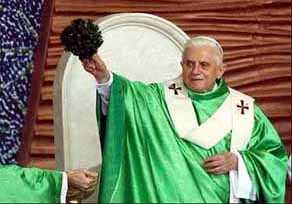
Will Benedict's announced encyclical against Capitalism support Barrajon's ecology? |
"Small ecological communities will sprout that will be strongly committed to a serene, peaceful living in nature, using solar energy, consuming natural products, proposing an open spirituality and ecological exercises as profound as the spiritual ones.”
Communism, Buddhism and Yoga mixing with Catholicism would seem to be on the horizon to mold these religious groups of the future and replace the traditional Catholic ideals of the religious life as it existed before Vatican II. Insofar as the views of Fr. Fernandez Barrajon will prevail, the future will give us a Liberation Theology with another name, composed of Base Christian Communities with a green touch.
Is this just the input of the president of the Spanish religious? Let us wait and see what will be defended in the coming encyclical of Benedict XVI against Capitalism.


Related Topics of Interest
 Liberation Ecology Liberation Ecology
 Progressivism is Becoming Green Progressivism is Becoming Green
 The Hermeneutics of Watermelons The Hermeneutics of Watermelons
 Catholic-Buddhist Syncretism in France Catholic-Buddhist Syncretism in France
 Is Benedict XVI Adopting a Buddhist Agenda? Is Benedict XVI Adopting a Buddhist Agenda?
 Mother Teresa Worshipping Buddha Mother Teresa Worshipping Buddha
 John Paul II Kneeling at the Tomb of Gandhi John Paul II Kneeling at the Tomb of Gandhi
 Poor Clares Practicing Buddhist Exercises Poor Clares Practicing Buddhist Exercises
 Questions on Ecology Questions on Ecology
 A Glimpse of the Post-Modern Church A Glimpse of the Post-Modern Church

|
News | Home | Books | CDs | Search | Contact Us | Donate

©2002- Tradition in Action, Inc. All Rights Reserved
|
 |
|